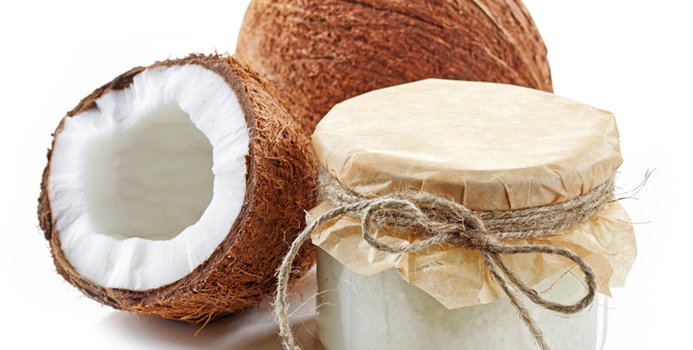Saturated Fats are a group of fatty acids that have hydrogens at all the points on their chemical chains. Recently there has been a move to review all the research to thoroughly identify if all saturated fatty acids have negative health effects or if some are associated with improved blood cholesterol levels. They have been for many years associated with causing the liver to make more LDL and total cholesterol, but there are thoughts that some actually increase HDL levels and others have no effect on blood cholesterol.
Multiple studies have shown that different types of saturated fats may have different effects on your body. Saturated fats, like palmitic acid or steric acid, seem to have different effects on LDL cholesterol circulating in your blood than some other saturated fatty acids.
The some different types of saturated fats include myristic acid, palmitic acid, stearic acid and lauric acid.
1. Myristic Acid
This acid is found in coconut oil, dairy products and palm oil, and is associated with raising blood cholesterol levels. Specifically for coconut oil, there are associated increases in LDL cholesterol, but it raises HDL cholesterol even more, so although it is raising the total blood cholesterol levels, your overall HDL to LDL cholesterol ratio levels may improve. Coconut oil has not been shown to be any better or worse than any other saturated fat. When buying coconut oil, always try to purchase less refined and less processed choices so that oil will contain more phytonutrients and the fatty acids close to original form.
2. Palmitic Acid
Found in coconut oil, palm kernel oil, meats and dairy, this saturated fatty acid is found to negatively affect your HDL and LDL cholesterol. It is linked to raising total blood cholesterol levels but lowering HDL levels.
3. Stearic Acid
After palmitic acid, stearic acid is the most saturated fatty acid found in nature. Stearic acid is found primarily in animal products and some studies have found that it has little to no effect on blood cholesterol levels. A study in the January 2010 in the American Journal of Clinical Nutrition found that when you replace trans-fats in the diet with high stearic acid, as opposed to other saturated fats, there was a beneficial effect on LDL cholesterol.
4. Lauric Acid
This form of saturated fat is found in palm kernel oil and coconut oil. There is some evidence suggesting it will lower triglyceride levels, improve the HDL and LDL ratios and slightly increase blood cholesterol levels.
Dietary Patterns vs. Individual Nutrients
Consuming some types of saturated fats is linked to raising blood cholesterol, while others may actually be improving the ratio of your blood cholesterol favorably. Keep in mind that all fats contain varying amounts of saturated fat, polyunsaturated fats and monounsaturated fats and there are many different types of fatty acids within those groups. We are not yet at a point where we can blanket statement that all saturated fatty acids are all bad or all good. Furthermore, many of the reviews have also not been able to fully assess what the effects of the food choices people make instead when they reduce saturated fat. Some research has shown that if you replace saturated fats with refined carbohydrates, like white bleached flour and soda, your risk of heart disease actually increases.
The Academy of Nutrition and Dietetics still recommends that you continue to keep saturated and trans fats to a minimum in your diet, and support choosing foods with more omega-3s. The things that we are sure of is that an active lifestyle and a plant-based diet is the best way to better health, rather than focusing on individual nutrients. There is not one single nutrient that is the entire problem causing poor heath -- it has more to do with your overall dietary patterns. People who consume high amounts of trans fats and saturated fats may have poorer diets overall. Healthier diets are focused on consistently choosing more nutritious foods rather than exclusively avoiding saturated fatty acids. Vegetables, lentils, nuts, seeds and fruits are generally lower in trans fats, sugars and saturated fats, while providing essential phytonutrients and fiber. Diets higher in these foods are associated with decreased risk of many diseases. Fats are still calorically dense and should be kept to 20-35% of your daily needs.

Emily DeLacey MS, RD is a Registered Dietitian and currently working in Jamaica as a HIV/ AIDS Prevention Specialist. She attended Central Washington University for her Bachelor's Degree in Science and Dietetics and continued on after her internship to Kent State University for her Master's Degree in Science and Nutrition, with a focus on public health and advocacy. She served as a U.S. Peace Corps Volunteer in Malawi 2012-2014 working as a Community Health Advisor in a rural village, immersing in the joys of life without electricity or running water. She has been to 20+ countries and 47 of the 50 states in the US. Traveling, adventuring and experiencing new cultures has made her a passionate advocate for the equality of nutrition and wellness for all people.



